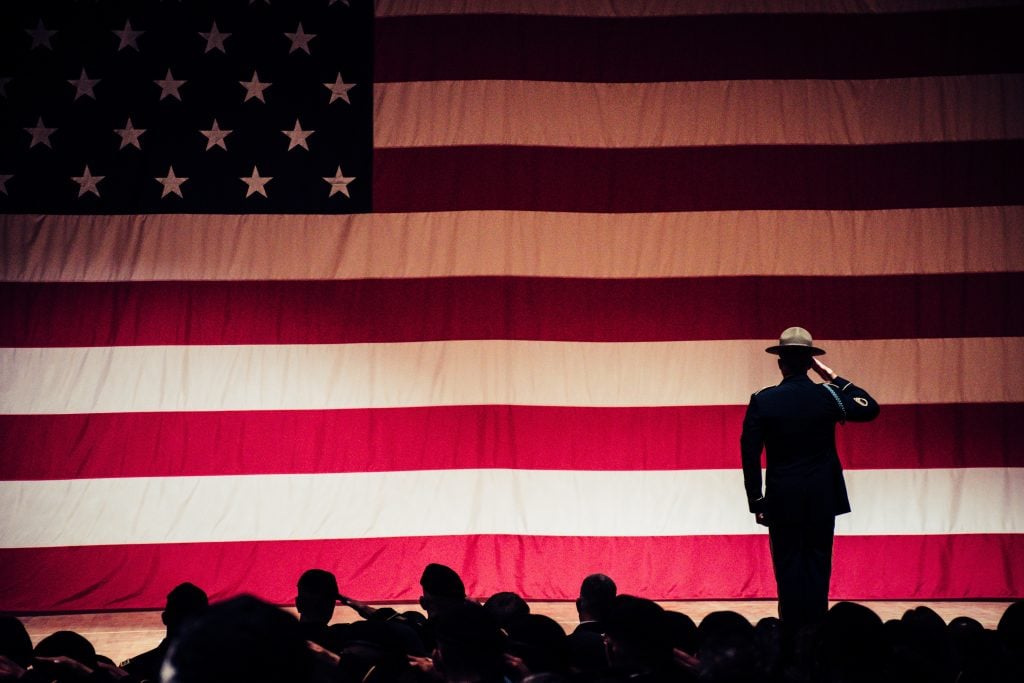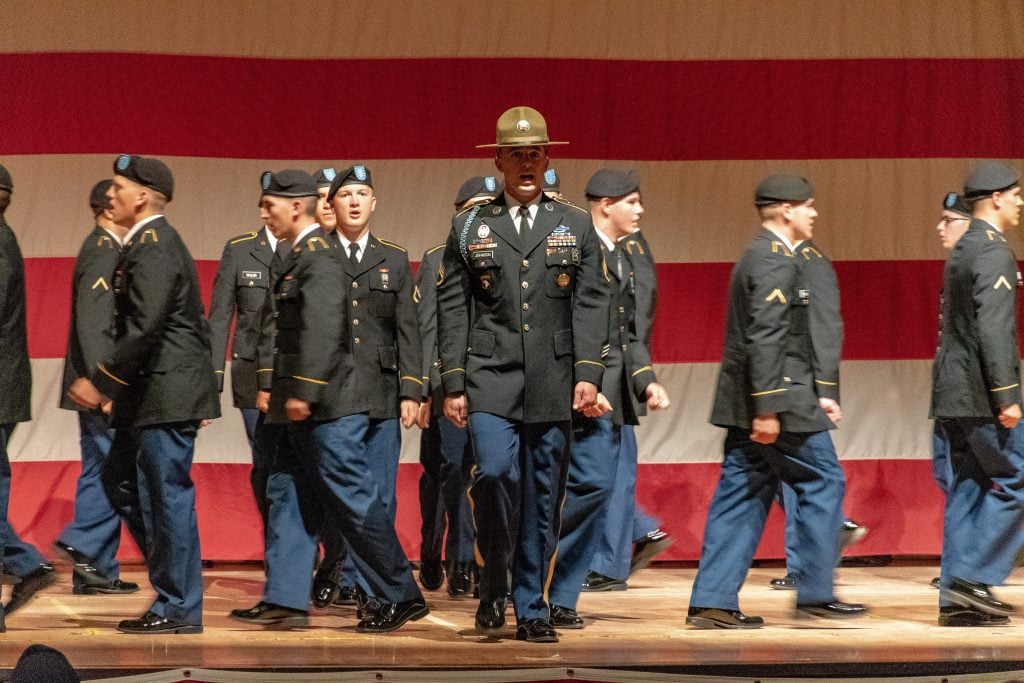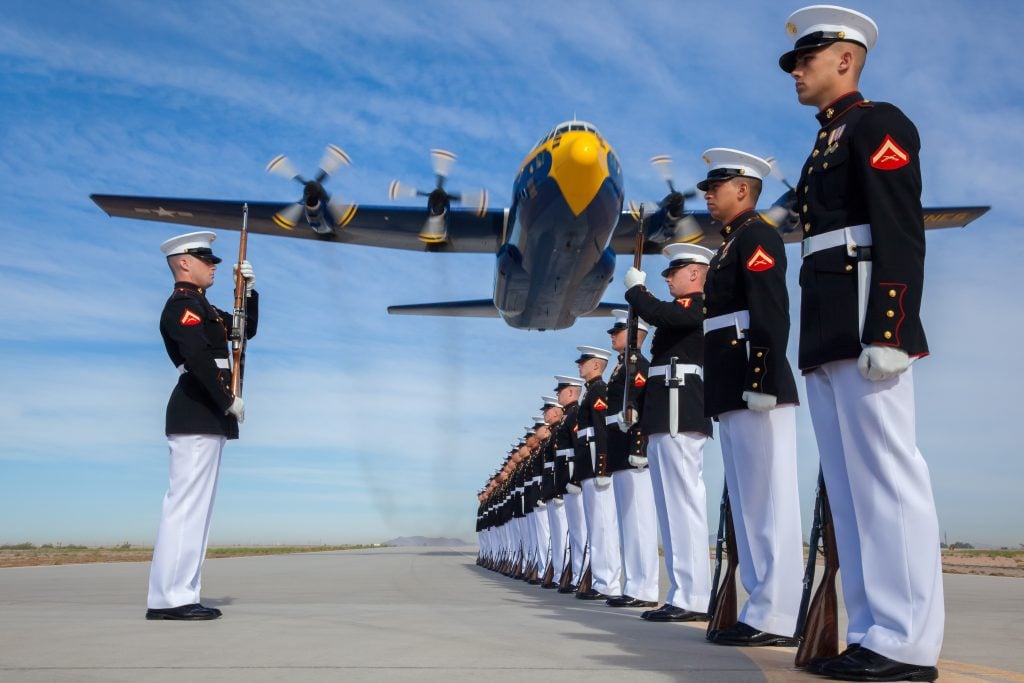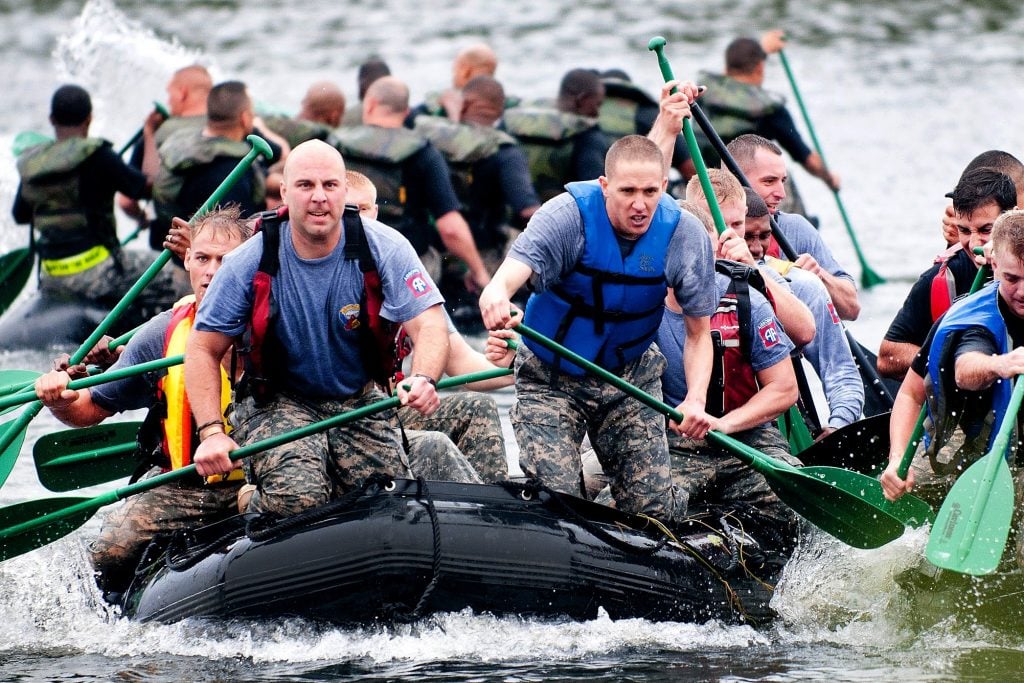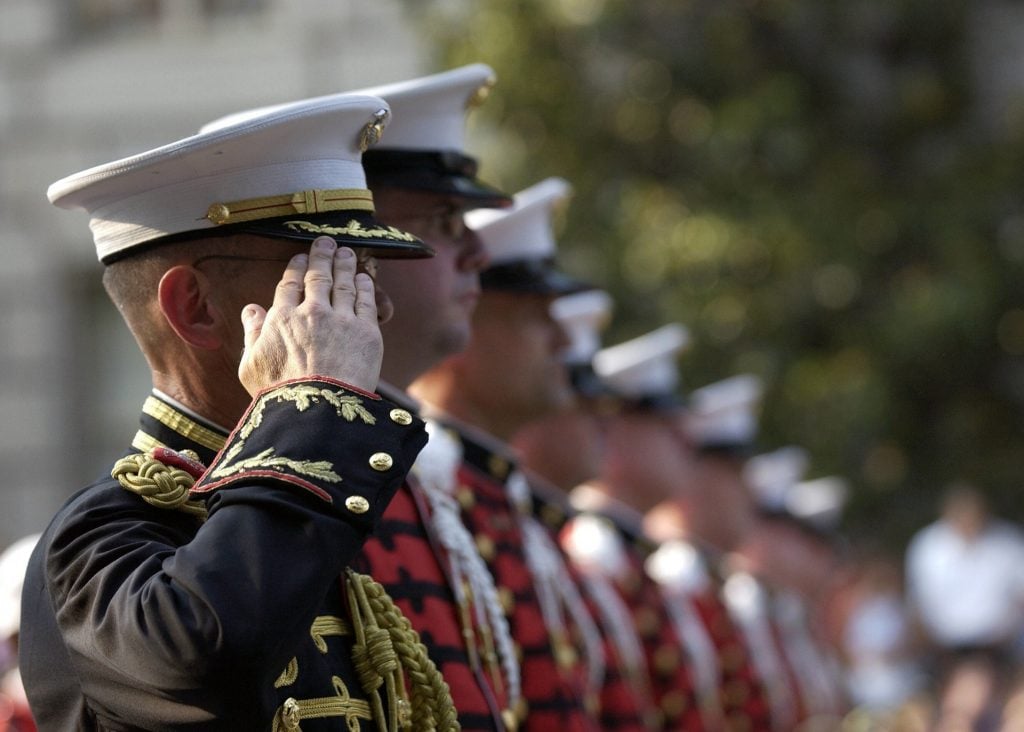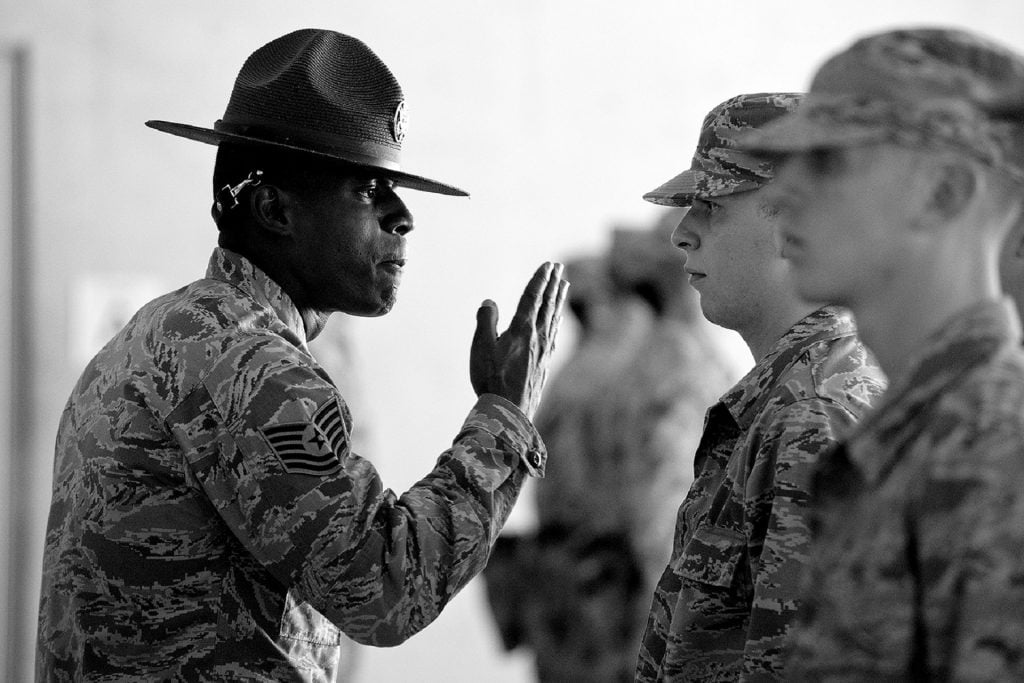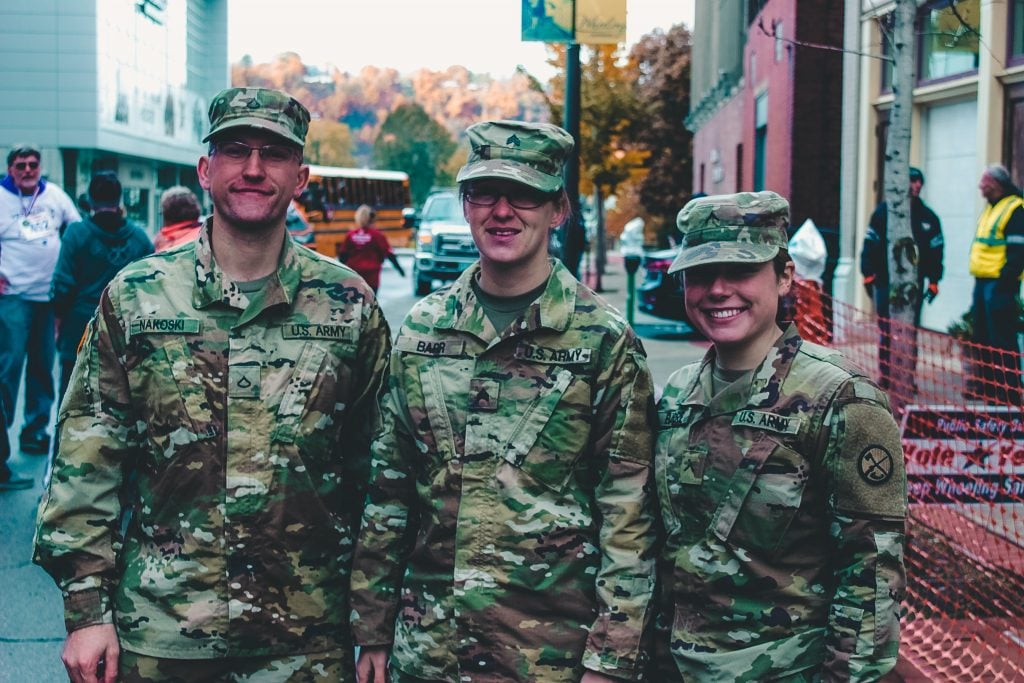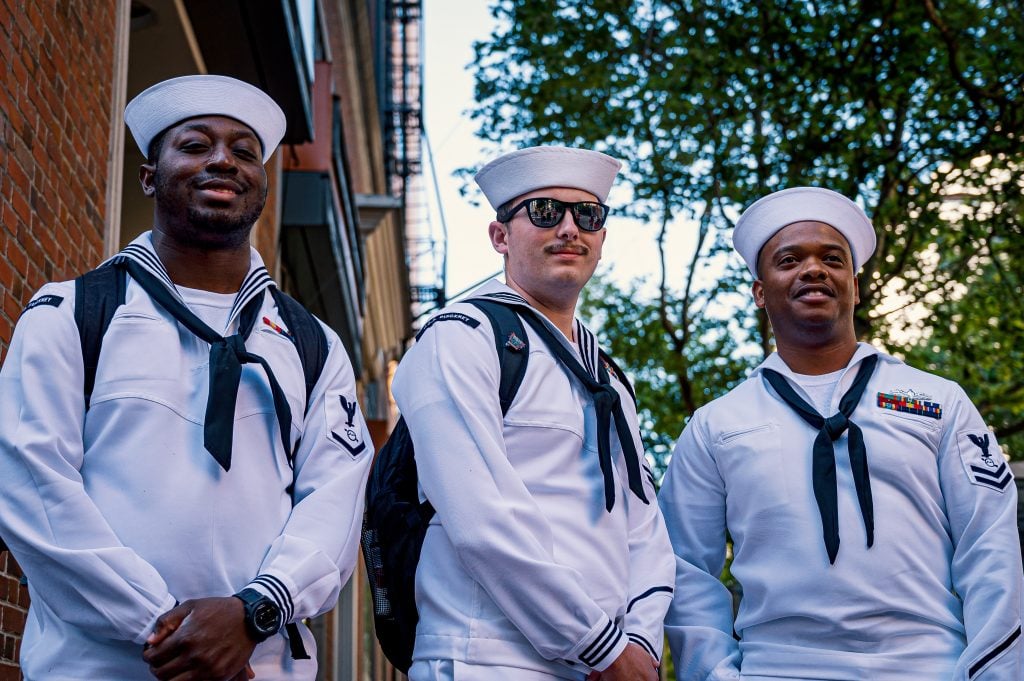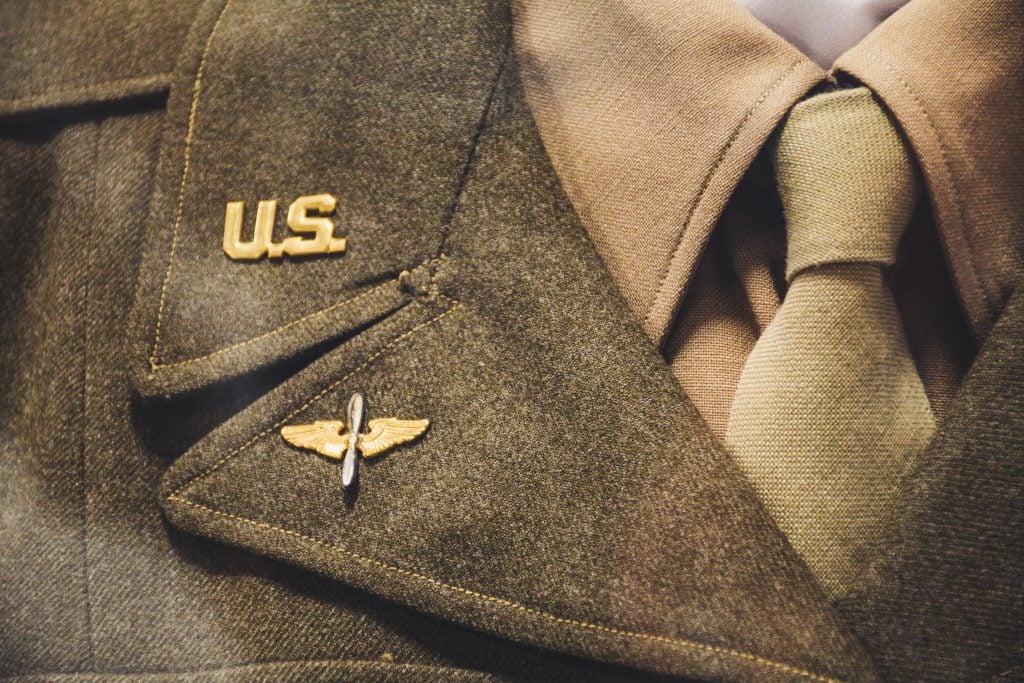Free Military Colleges: Are Military Academies Really Free?

Find your perfect value college

When students make a decision to serve their country, Uncle Sam wants to make sure that money won’t stop them. Tuition to The U.S. Military Academy at West Point, The U.S. Air Force Academy, The U.S. Naval Academy at Annapolis, The U.S. Coast Guard Academy, and The U.S. Merchant Marine Academy, is waived for cadets and midshipmen, but the entrance criteria are narrowly reserved for the fit, in every sense of the word.
Military academies offer an excellent education for those who are looking to serve their country and get a free college degree. They also provide a high-quality education that is more than worth the cost of tuition.
Featured Programs
The military academy offers a rigorous and challenging academic program that will prepare you for the real world. It also offers a well-rounded education with a focus on leadership and character development. You will be trained in areas such as engineering, math, science, and history. And you will have the opportunity to take electives like art or music appreciation. Many cadets go on to graduate programs in engineering school, medical school, and law school.
How Are Military Schools Free?
Is West Point free? Is the Naval Academy free? When it comes to tuition, yes. West Point tuition is totally free tuition if you get in. So are the other schools in the military academy system. But you still pay your way to the free military academies in other ways. Remember, there is one reason and one reason only that military academies are free: the US military wants to train the most capable military officers in the world. There’s no need for financial aid at a military academy!
The United States military is one of the most respected and influential forces in the world. The military academies are some of the best schools in America, and they have a long history of producing some of our nation’s finest leaders. If you’re interested in pursuing a career that will challenge you, provide you with excellent benefits, and offer tremendous opportunities for advancement, then a United States military academy may be exactly what you’re looking for.
These five federal service academies serve to produce servicemen and women in all five branches of the U.S. military, including the
- Army
- Navy
- Marines
- Air Force
- Coast Guard
In order to ensure that the investment made into these young people’s future of professional success can also benefit the country in the way of service and dedication, candidates selected to study at these institutions pledge a number of years of service in the military. It’s like a scholarship valued at thousands of dollars, paid back via a service obligation.
For the Military Academy at West Point, Naval Academy at Annapolis, and the Air Force Academy, the standard military service commitment is five years active duty; five years in the Army, Navy, and Air Force respectively, and three more years in the reserves. For the Merchant Marine Academy, it is six active years and two reserve years. For the Coast Guard Academy, it is five active years.
In addition to these post-graduation commitments, there are costs associated with attending each academy, similar to additional room and board costs at another college or university, but unlike some other institutions, the expense is generally under $2,000 per year. These fees pay for things like food, dry cleaning those impressive uniforms, and the barbershop costs to keep cadets and midshipmen representing their institution in the best light possible. Most college students’ cell phone bills cost more than that. There may also be financial assistance available to cover those expenses.
How Do I Get Into a Military Academy?

Getting into one of the free military schools is a real challenge. Some of the admissions process is just like applying to a traditional college – transcripts, GPA, recommendation letters, writing samples, and so on. But even those basic requirements are high. You generally need at least a 1300 on the SAT or 30 on the ACT to be considered. Plus, the academies want to see difficult courses on your transcript, like AP or international baccalaureate classes.
If you want to get into a military academy like West Point, there are several things that you need to do that are different from the admissions process of other schools. First off, take the Armed Services Vocational Aptitude Battery (ASVAB) test. The ASVAB is given by all branches of the U.S. Military to help them determine whether or not candidates are qualified for enlistment in any branch of service
Not only are the intelligence and scholarly criteria exhaustive and competitive, but for all except the Coast Guard Academy, it takes an act of Congress to get you in (actually, it is a congressional nomination, but you get the idea). 75% of people accepted into the academies get nominations from a member of Congress – House of Representatives and Senate. The Vice President can nominate as well. However, each of these people can only have 5 nominees in a military academy at the time. Presidential nominations are unlimited, but only for the children of career military officers.
The physical fitness criteria to be considered for these institutions is on par with professional athletes, or better. No freshman fifteen here! The physical fitness test – the Candidate Fitness Assessment (CFA) – is pretty serious. There are six requirements:
- Basketball throw on your knees
- Pull-ups
- 40-yard shuttle run
- Crunches
- Push-ups
- One-mile run
Not only do you have to pass the test, but all cadets are required to play a sport, either on the school team or intramural. If you want to know who you’re competing with, just keep in mind that 85% of cadets got a varsity letter in high school. 85%. Not in e-sports, either.
Of course, even if you can do all that, there is still a medical exam. You could be rejected for issues like:
- impaired vision
- dental problems
- obesity
- asthma
- arthritis
You could even be rejected based on food allergies! If the academy wants you bad enough, you can apply for a waiver, but those are few and far between.
In short, a military academy is real military life – not dress-up. And military life is challenging. West Point is for real. The Air Force Academy is for real. For all intents and purposes, you are in the military. You have to be ready for serious military training. Note – current active-duty enlisted personnel and other service members can apply to any United State military academy too, with credit for prior military service.
[Interested in other institutions offering tuition-free opportunities? Check out our ranking Top 25 Free Colleges in the U.S.]What If I Don’t Get In?
So you applied for the military academy and got rejected. What do you do now? You have to pick yourself up and move on. There are many reasons why you could get rejected, but there’s no point in dwelling on them. It is important to take that rejection as a learning opportunity and think of how you can make a better second attempt at getting into the academy later this year.
If you were rejected from the military academy, then you need to find out why you were rejected. You need to contact the admissions officer and ask them why you were rejected. This will help you understand where you went wrong and how you can improve your application next year. If you were rejected from a military academy or any other top-tier institution, you probably received feedback from admissions explaining why you weren’t accepted. You may have received a form letter that doesn’t provide any personal insight. That’s why it is important to follow up with the admissions office to request a personal phone call or personal email so that you can better understand what you need to improve for next year.
If you were rejected from military academy because of your test scores, then it’s time to buckle down and start working on those areas where you lack practice in. Getting into any competitive program is not easy, so here are some steps that will help you tackle rejection and get into the military academy again next year.
Before you do anything else, you must change your mindset first. You may have been expecting a different result from your application, and that’s okay. The key is to accept this result and move on from there. It is important to understand that you can’t always get what you want. In fact, the biggest challenge is to get what you don’t want.
If Military Academies Are Free, Why Isn’t College?
If you can go to military schools for free, why can’t you go to any college for free?
While the model of dedication to excellence at any cost has yet to catch on in all colleges and universities around the country, the federal service academies have found a winning combination. Removing financial barriers of access to those applicants with the drive to achieve greatness, and supporting the same applicants to follow through with their commitments.
It’s not a model that would extend to all public universities and colleges – passing a ropes course just to get in might be too much for most people. But student support and affordability are worth the cost to turn top-notch students into top-notch leaders.
First of all, military academies aren’t free – it’s just that the tuition is paid by the American taxpayer. That sounds like splitting hairs, but it’s important.
College tuition is not free because there are many costs associated with the education. Colleges need a lot of money for various things in the school year, such as maintaining buildings and providing food for students. There are also other costs such as paying faculty and staff, buying books and equipment, etc. That’s why students receive financial aid for college.
Military colleges are free because they provide a service to the country in order to maintain their funding. Military colleges educate cadets for future military service in exchange for tax dollars that fund their operations and facilities.
Related Rankings:
- Best Value Online Colleges
- Lowest Out-of-State Tuition Colleges
- Best Value Community Colleges
- Best Value Online Graduate Schools
- Essential Guide to Online education in the USA
Featured Programs
Aya Andrews
Editor-in-Chief
Aya Andrews is a passionate educator and mother of two, with a diverse background that has shaped her approach to teaching and learning. Born in Metro Manila, she now calls San Diego home and is proud to be a Filipino-American. Aya earned her Masters degree in Education from San Diego State University, where she focused on developing innovative teaching methods to engage and inspire students.
Prior to her work in education, Aya spent several years as a continuing education consultant for KPMG, where she honed her skills in project management and client relations. She brings this same level of professionalism and expertise to her work as an educator, where she is committed to helping each of her students achieve their full potential.
In addition to her work as an educator, Aya is a devoted mother who is passionate about creating a nurturing and supportive home environment for her children. She is an active member of her community, volunteering her time and resources to support local schools and organizations. Aya is also an avid traveler, and loves to explore new cultures and cuisines with her family.
With a deep commitment to education and a passion for helping others succeed, Aya is a true inspiration to those around her. Her dedication to her craft, her community, and her family is a testament to her unwavering commitment to excellence in all aspects of her life.

